-
 Bitcoin
Bitcoin $83,291.0340
-0.96% -
 Ethereum
Ethereum $1,826.6379
-1.54% -
 Tether USDt
Tether USDt $0.9998
0.00% -
 XRP
XRP $2.0549
-1.26% -
 BNB
BNB $606.8753
1.28% -
 Solana
Solana $119.1310
-4.05% -
 USDC
USDC $1.0000
0.00% -
 Dogecoin
Dogecoin $0.1659
-1.56% -
 Cardano
Cardano $0.6500
-2.57% -
 TRON
TRON $0.2364
-0.34% -
 Toncoin
Toncoin $3.7730
-5.06% -
 UNUS SED LEO
UNUS SED LEO $9.4476
0.65% -
 Chainlink
Chainlink $13.0772
-2.81% -
 Stellar
Stellar $0.2627
-1.16% -
 Avalanche
Avalanche $18.6021
-1.63% -
 Sui
Sui $2.3506
0.90% -
 Shiba Inu
Shiba Inu $0.0...01230
1.04% -
 Hedera
Hedera $0.1637
0.05% -
 Litecoin
Litecoin $83.5759
2.10% -
 Polkadot
Polkadot $4.0229
-0.74% -
 MANTRA
MANTRA $6.3749
2.08% -
 Bitcoin Cash
Bitcoin Cash $303.6743
-0.24% -
 Bitget Token
Bitget Token $4.5449
-0.46% -
 Dai
Dai $1.0000
-0.01% -
 Ethena USDe
Ethena USDe $0.9997
-0.01% -
 Pi
Pi $0.6435
-7.05% -
 Hyperliquid
Hyperliquid $12.2904
-5.52% -
 Monero
Monero $214.8078
-0.76% -
 Uniswap
Uniswap $6.0066
-0.82% -
 Aptos
Aptos $5.2560
0.22%
What are the methods to sell BLUR coins?
To sell BLUR tokens, choose a cryptocurrency exchange that supports BLUR trading, create an account, deposit BLUR tokens, place a sell order specifying quantity, price, and order type, and wait for it to be filled before withdrawing funds.
Nov 22, 2024 at 09:28 pm
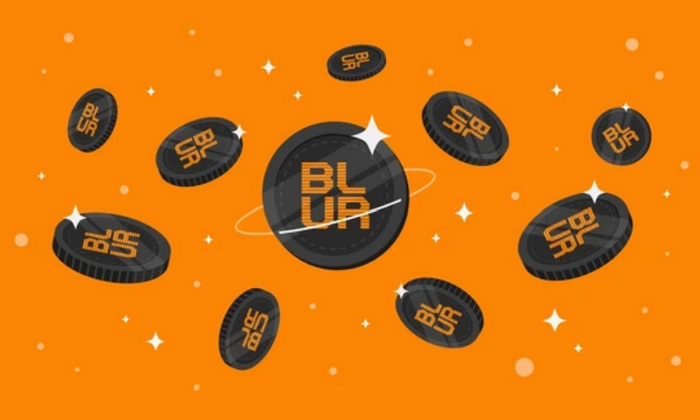
How to Sell Blur (BLUR) Tokens: A Comprehensive Guide
Blur is a non-fungible token (NFT) marketplace that allows users to buy, sell, and trade NFTs. The platform also offers a variety of features, such as support for multiple blockchains, gas-free trading, and advanced search capabilities. BLUR is the native token of the Blur platform, and it can be used to pay for transaction fees, earn rewards, and participate in governance.
If you're interested in selling BLUR tokens, there are a few different methods you can use. In this guide, we'll walk you through each step of the process, so you can get the best possible price for your tokens.
Step 1: Choose a cryptocurrency exchange
The first step is to choose a cryptocurrency exchange that supports BLUR trading. Not all exchanges support BLUR, so it's important to do your research before choosing one. Some of the most popular exchanges that support BLUR trading include:
- Binance
- Coinbase
- Huobi
- OKX
- Kraken
Step 2: Create an account on the exchange
Once you've chosen an exchange, you'll need to create an account. This process typically involves providing your name, email address, and password. You may also need to verify your identity by providing a government-issued ID.
Step 3: Deposit BLUR tokens into your account
Once you've created an account, you'll need to deposit BLUR tokens into it. You can do this by transferring BLUR tokens from another wallet or by purchasing them on the exchange.
Step 4: Place a sell order
Once you have BLUR tokens in your account, you can place a sell order. A sell order is an instruction to the exchange to sell a certain number of BLUR tokens at a certain price.
When placing a sell order, you'll need to specify the following:
- The number of BLUR tokens you want to sell
- The price you want to sell them for
- The type of order you want to place
There are two main types of orders:
- Market orders are executed immediately at the current market price.
- Limit orders are executed only when the market price reaches a certain level.
Step 5: Wait for your order to be filled
Once you've placed a sell order, you'll need to wait for it to be filled. This can happen immediately, or it may take some time, depending on the market conditions.
Step 6: Withdraw your funds
Once your order has been filled, you can withdraw your funds from the exchange. You can do this by sending them to another wallet or by cashing them out through a bank account.
Disclaimer:info@kdj.com
The information provided is not trading advice. kdj.com does not assume any responsibility for any investments made based on the information provided in this article. Cryptocurrencies are highly volatile and it is highly recommended that you invest with caution after thorough research!
If you believe that the content used on this website infringes your copyright, please contact us immediately (info@kdj.com) and we will delete it promptly.
- Bitcoin (BTC) price falls four per cent after Donald Trump imposes tariffs on trading partners worldwide
- 2025-04-03 14:25:13
- Ethereum Price Fails to Maintain Gains
- 2025-04-03 14:25:13
- Justin Sun, Founder of Tron, Steps in to Rescue TrueUSD (TUSD) from a $456M Reserve Crisis
- 2025-04-03 14:20:12
- Meme Coins Are Exploding, Here's Why They're So Appealing
- 2025-04-03 14:20:12
- Qubetics ($TICS): The Best 100x Crypto for Real Utility and ROI
- 2025-04-03 14:15:12
- Ethereum Faces Tough Market Conditions
- 2025-04-03 14:15:12
Related knowledge
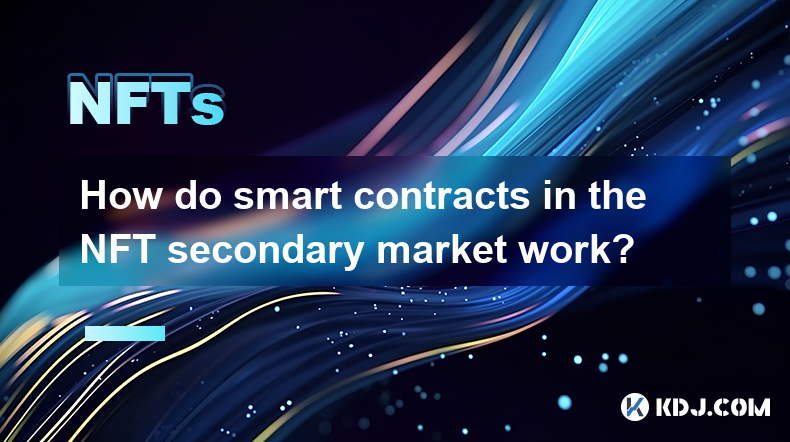
How do smart contracts in the NFT secondary market work?
Apr 03,2025 at 07:14am
Smart contracts play a pivotal role in the NFT secondary market, facilitating seamless transactions and enforcing predefined rules. These self-executing contracts with the terms of the agreement directly written into code are stored on the blockchain. In the context of NFTs, smart contracts automate the buying, selling, and transferring of digital asset...
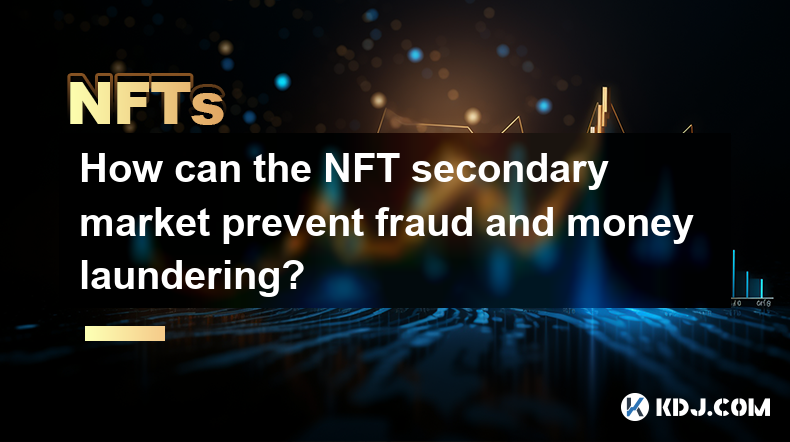
How can the NFT secondary market prevent fraud and money laundering?
Apr 03,2025 at 08:35am
The NFT secondary market has become a thriving hub for digital art and collectibles, but it also faces challenges in preventing fraud and money laundering. To tackle these issues, the market can implement various strategies and technologies to ensure a safer and more transparent trading environment. This article will explore how the NFT secondary market...
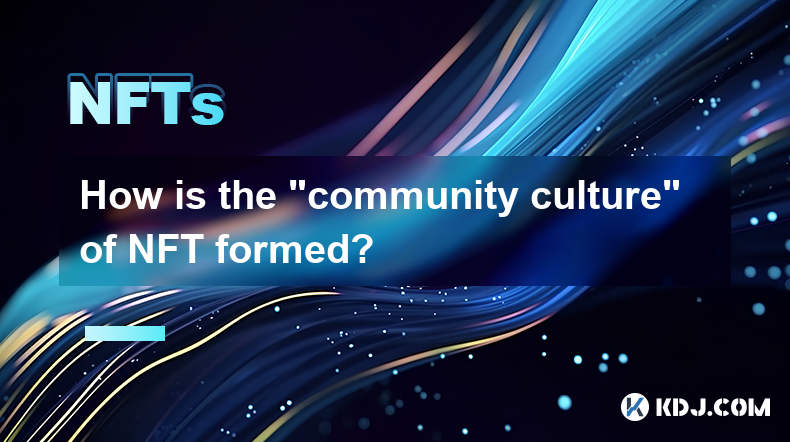
How is the “community culture” of NFT formed?
Apr 03,2025 at 11:07am
The formation of the 'community culture' within the NFT (Non-Fungible Token) space is a fascinating and multi-faceted process. It involves various elements such as shared interests, active engagement, and the creation of a sense of belonging among members. NFT communities often revolve around specific projects or artists, fostering a unique environment ...
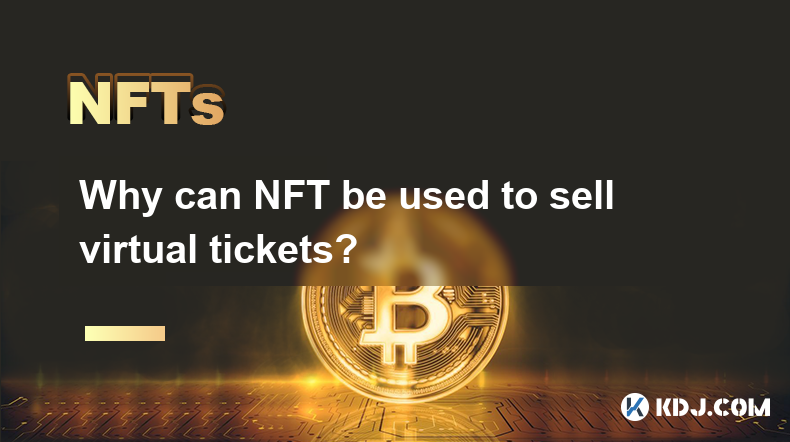
Why can NFT be used to sell virtual tickets?
Apr 03,2025 at 01:35pm
NFTs, or Non-Fungible Tokens, have revolutionized the way we think about digital ownership and value, particularly in the realm of virtual tickets. The primary reason NFTs can be used to sell virtual tickets is their unique nature. Unlike cryptocurrencies such as Bitcoin or Ethereum, which are fungible and can be exchanged on a one-to-one basis, NFTs ar...
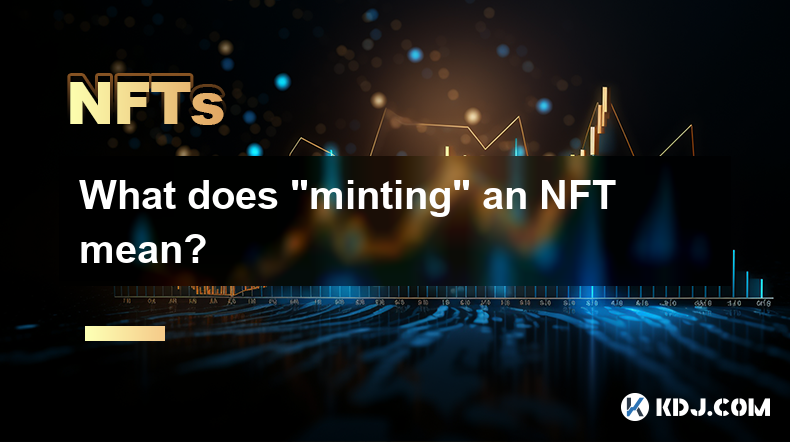
What does “minting” an NFT mean?
Apr 03,2025 at 01:28pm
Minting an NFT, or Non-Fungible Token, refers to the process of creating and publishing a unique digital asset on a blockchain. This process transforms a digital file into a blockchain-based asset that can be owned, bought, sold, or traded. The term 'minting' is borrowed from the traditional concept of producing coins, symbolizing the creation of someth...
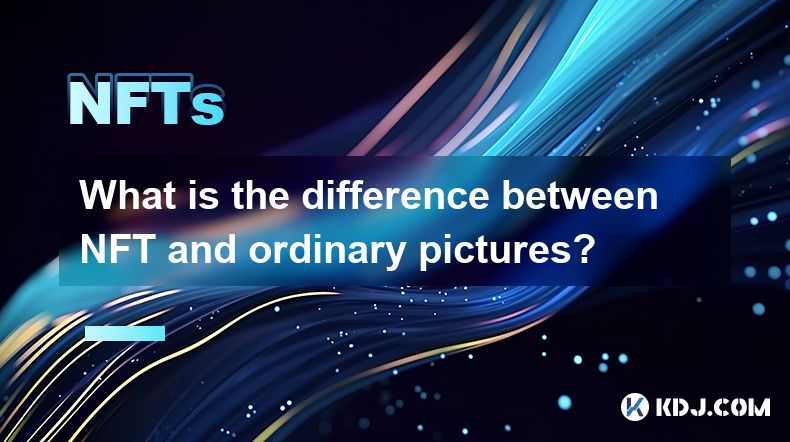
What is the difference between NFT and ordinary pictures?
Apr 03,2025 at 02:07pm
The world of cryptocurrency has seen a significant rise in the popularity of Non-Fungible Tokens (NFTs), which often leads to confusion about what sets them apart from ordinary pictures. In this article, we will delve into the key differences between NFTs and regular images, exploring their unique features, applications, and implications within the cryp...

How do smart contracts in the NFT secondary market work?
Apr 03,2025 at 07:14am
Smart contracts play a pivotal role in the NFT secondary market, facilitating seamless transactions and enforcing predefined rules. These self-executing contracts with the terms of the agreement directly written into code are stored on the blockchain. In the context of NFTs, smart contracts automate the buying, selling, and transferring of digital asset...

How can the NFT secondary market prevent fraud and money laundering?
Apr 03,2025 at 08:35am
The NFT secondary market has become a thriving hub for digital art and collectibles, but it also faces challenges in preventing fraud and money laundering. To tackle these issues, the market can implement various strategies and technologies to ensure a safer and more transparent trading environment. This article will explore how the NFT secondary market...

How is the “community culture” of NFT formed?
Apr 03,2025 at 11:07am
The formation of the 'community culture' within the NFT (Non-Fungible Token) space is a fascinating and multi-faceted process. It involves various elements such as shared interests, active engagement, and the creation of a sense of belonging among members. NFT communities often revolve around specific projects or artists, fostering a unique environment ...

Why can NFT be used to sell virtual tickets?
Apr 03,2025 at 01:35pm
NFTs, or Non-Fungible Tokens, have revolutionized the way we think about digital ownership and value, particularly in the realm of virtual tickets. The primary reason NFTs can be used to sell virtual tickets is their unique nature. Unlike cryptocurrencies such as Bitcoin or Ethereum, which are fungible and can be exchanged on a one-to-one basis, NFTs ar...

What does “minting” an NFT mean?
Apr 03,2025 at 01:28pm
Minting an NFT, or Non-Fungible Token, refers to the process of creating and publishing a unique digital asset on a blockchain. This process transforms a digital file into a blockchain-based asset that can be owned, bought, sold, or traded. The term 'minting' is borrowed from the traditional concept of producing coins, symbolizing the creation of someth...

What is the difference between NFT and ordinary pictures?
Apr 03,2025 at 02:07pm
The world of cryptocurrency has seen a significant rise in the popularity of Non-Fungible Tokens (NFTs), which often leads to confusion about what sets them apart from ordinary pictures. In this article, we will delve into the key differences between NFTs and regular images, exploring their unique features, applications, and implications within the cryp...
See all articles























































































